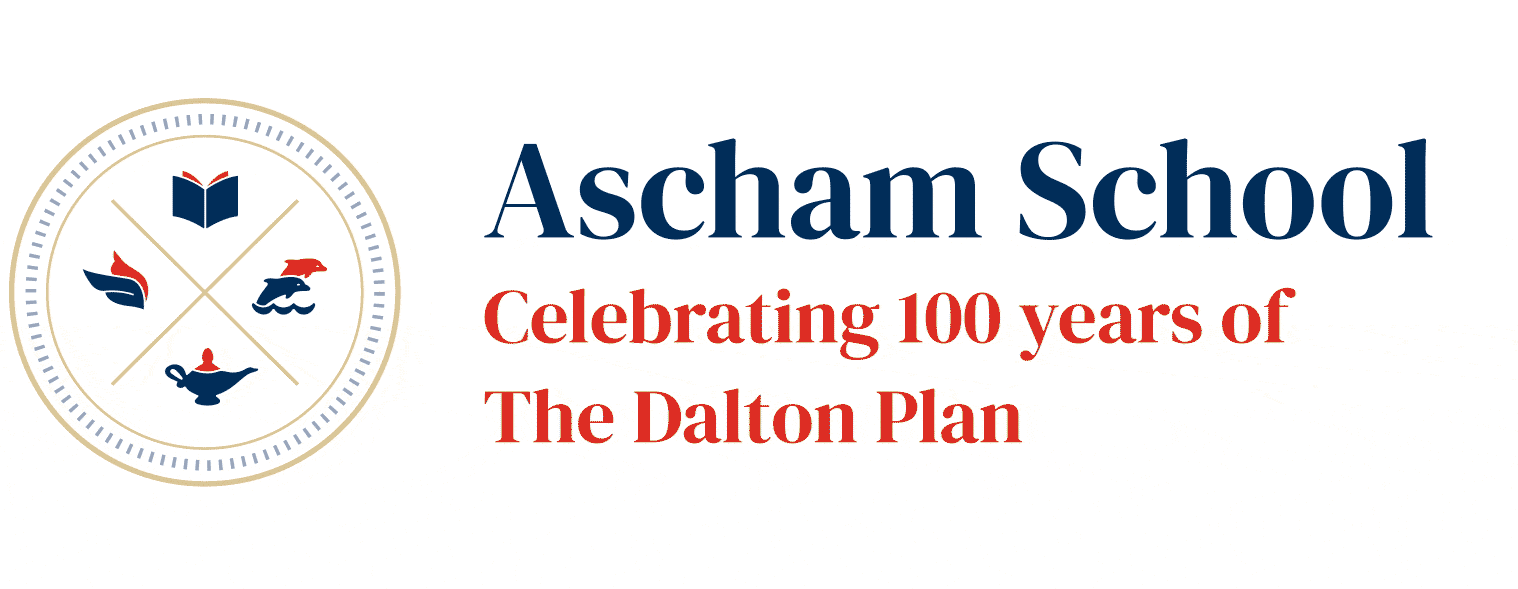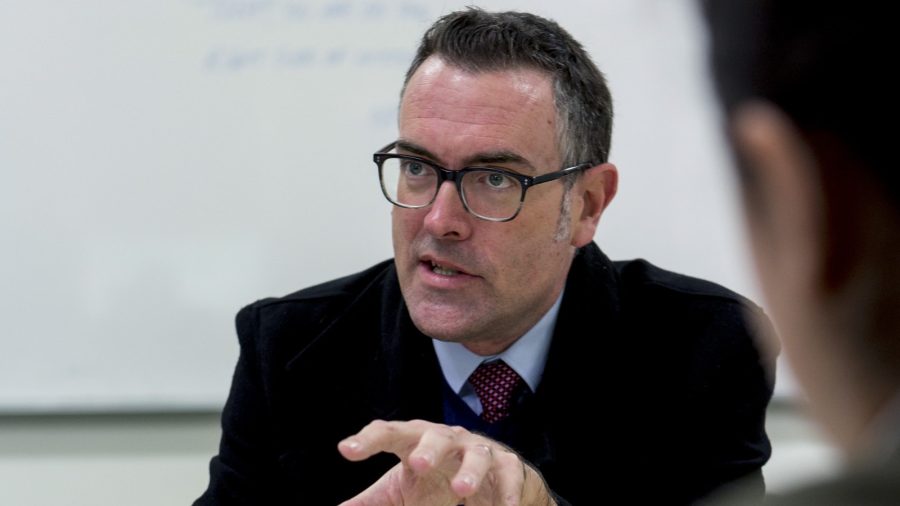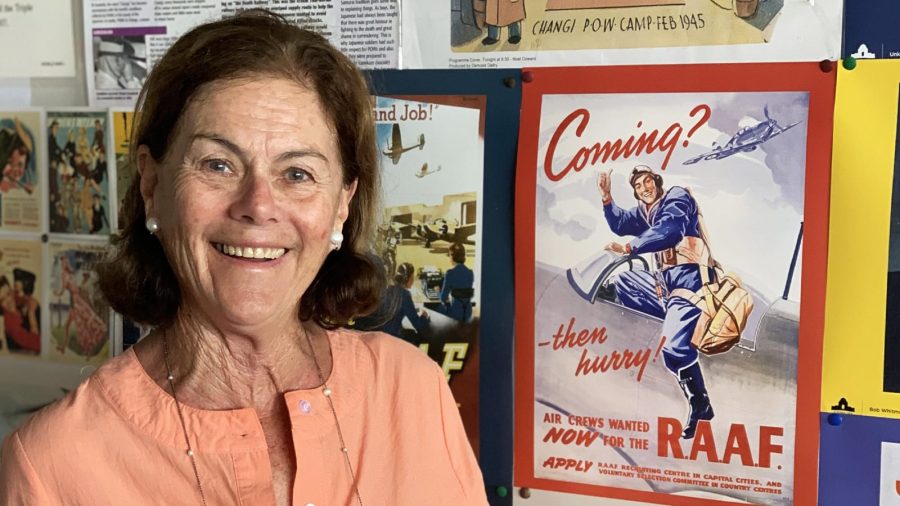100 Years of Dalton
Celebrating a century of Dalton
We celebrate 100 years of the Dalton Plan, its principles of independence, collaboration, responsibility and reflection, and the generations of girls who have benefitted.
A unique approach

The Dalton Plan has underpinned how Ascham girls have approached their studies, their careers and their lives since its introduction by Margaret Bailey in 1922.
The unique teaching and learning framework of the Dalton Plan is proven to guide girls’ intellectual and personal growth, enriching their School years and life beyond. It provides a robust platform on which girls learn to build respectful connections, develop a strong sense of responsibility and self-management, shape their decision making and build confidence, and become self-directed, intrinsically-motivated individuals.
“The three key aspects of Dalton—the Lesson, the Study and the Assignment—together make you a very independent thinker.
Dalton has really helped my learning, allowing me to extend myself and seek any extra help from my teacher.”
Margot Harris
Year 12 student and Chair of the 2022 Ascham School Committee
Sound principles
Our teaching philosophy embraces the four key principles of Dalton— responsibility, independence, collaboration and reflection—to inspire classroom learning and encourage a goal-oriented mindset.
Our unique wellbeing framework, Vi et Animo—with heart and soul, strength and courage—is built around these principles and together they develop academic buoyancy for girls, giving them the skills to cope with challenges and setbacks.
Responsibility
When Helen Parkhurst envisioned the Dalton Plan, she believed that students taking responsibility for their own decisions was critical to growth and development. Taking responsibility for personal decisions gives our young people self-efficacy and direct involvement in the activities that will shape them, and our students demonstrate responsibility every day in their Lessons, House groups, and beyond the classroom through their Charity and Community Service work. Most importantly, our students take responsibility for their intellectual growth: they make the choice every day to prioritise, set goals and stretch themselves to grow continually. Such decision-making is modelled, discussed and reflected upon in order to continue developing the moral and intellectual reasoning for their choices.
We teach our students how to ask questions, giving them the autonomy to make their own mistakes and the time to reflect. A flexible timetable and choice of Assignments gives students the freedom to make decisions and take responsibility for their learning.
Independence
We believe that every student should develop the independence to make decisions for themselves and the motivation to complete tasks autonomously. This attribute is facilitated through a flexible timetable that enables students to choose which subjects they wish to learn, based upon their needs and desires. With this flexibility comes the development of curiosity to explore and extend themselves in subjects that they find particularly interesting or rewarding, while maintaining rigour across all their subjects.
We ask students to listen intently in Lessons, use their notes and resources to grapple with problems as much as they can by themselves, then ask their teacher for assistance. This allows them to uncover any misunderstandings and practise using resources to complete Assignment tasks. Their teacher is always a partner in this growth to independence, gently guiding and intervening to steer the students in the right direction.
Such independence means our students are prepared for lifelong learning and developing vital skills and knowledge beyond School.
Collaboration
Students learn respectful relationships and teamwork, working collectively for the success of the group. Whether working together in the classroom, in a music ensemble or on the sporting field, collaboration enables sharing of ideas and builds the skills of respectfulness, reliability, conflict management, clear communication, division of roles and celebrating the skills and knowledge of others.
We encourage our students to work together and remain committed to the task to its completion, encouraging others to do the same. All students can be leaders of the group, making contributions and inviting others in, considering all positions and perspectives. When all members of the group contribute with generosity and positivity, real growth and change can happen. Through collaboration, behaviours of self-regulation, responsibility, perseverance, empathy, self-confidence and purpose are taught explicitly.
The positive impact on wellbeing, relationships and citizenship makes collaboration a crucial life-long skill.
Reflection
To reflect is to take a considered approach to one’s actions, engage with feedback and make adjustments and changes to one’s habits and behaviours, and we believe reflection is a crucial element of a Dalton education. By reflecting we strive for change and improvement, to achieve a personal best and develop skills that benefit the whole community of learners.
In the Senior School, girls experience constant feedback as their assignments are checked regularly. This forges a trusting relationship between each girl and her teacher as both come together to reflect upon the strengths and weaknesses of each piece of work, and consider any gaps in learning. Dalton studies provide the space for reflection and its powerful role in learning.
Well-supported reflection also enables our girls to develop a growth mindset. Any setbacks are dealt with immediately, as teachers will provide strategies to remedy any skill or conceptual deficits. This provides a structured and safe environment to move forward. As teachers and students reflect on how work can be improved and developed, they develop a trusting relationship that makes being a student at Ascham so fulfilling.
The power of the Dalton Plan is evident in our girls’ ‘can-do’ attitudes, resilient mindsets and academic buoyancy, more able to cope with setbacks and challenges while retaining a positive outlook throughout their learning and personal development.
Long after they have left Ascham and are pursuing fulfilling professional careers and personal lives, Ascham Old Girls retain a strong connection to and love for the Dalton Plan and the outcomes it has allowed them to achieve.
Proudly Ascham—our Dalton history
Helen Parkhurst was inspired by Maria Montessori and began developing the groundwork for The Dalton Plan.
Miss Margaret Bailey converts a garden building into a prep school to make room for senior school students to have a quiet study area.
Margaret Bailey travels abroad to research more education experiments. At that time, Helen Parkhurst publishes her book Education on the Dalton Plan.
Thanks to The Dalton Plan, many girls are completing their final year of school, and moving on to university. Dr Joan Storey received a university medal in Medicine.
Miss Merilee Roberts wrote ‘50 years of the Dalton Plan,’ where she attributed the success of the plan to the focus on student learning and a strong relationship between student and teacher.
Mrs Rowena Danziger steers Ascham through the remainder of the 20th century, and ensures the survival of the Dalton Plan by introducing new elements to the curriculum.
The Dalton Plan adapts to suit the demands of teaching learning in the 21st Century, including STEAM and innovation.
Its fundamental principles remain as they always have.
DALTON IN ACTION
Dalton voices
Generations of Ascham girls have been inspired by the unique classroom learning and individual development fostered by the Dalton Plan. They have learned to stretch themselves, to strive for their best and to stumble along the way, applying effort to meet the demands of the curriculum and in whatever pursuits they follow.
Catriona Booth (1982), President of the APA, outlines how the Dalton Plan provides girls with an inner confidence that sets them apart and benefits their careers.
Margot (Year 12), Chair of the 2022 Ascham School Committee, explains how Dalton is structured, and the benefits it provides in learning.
Jason Higgins, Year 6 Coordinator at Ascham, expands on the four Dalton pillars and how they guide deeper and more responsible learning.
DALTON EDUCATION WORLDWIDE
Dalton International
Ascham is the only Dalton Plan school in Australia; we are however part of a wider, international network of like-minded schools, joined in the firm belief that Dalton is a vitally important educational framework. Now more than ever it is invaluable in its approach to responsibility and collaboration in an increasingly disconnected world.
“Congratulations to everyone involved in the 100th Anniversary of the Dalton Plan at Ascham School! Your excellent management and team of teachers are continuously protecting the core values of the Dalton Plan and at the same time implementing the innovations in a modern Dalton education.
The Dalton Plan at Ascham stimulates the intellectual partnership between girls and teachers. Certainly, at the base of all educational activities lies mutual trust and respect, which is also the basis of Dalton Education worldwide. A Dalton school is also about taking care of the students’ wellbeing. Students shape the attitude of openness, they stimulate their own growth by creating a healthy, strong Dalton community. At Ascham the girls themselves express their appreciation of how the Dalton Plan is important for them in their social, professional and private life. The students are intrinsically motivated to achieve their own goals, be persistent, flexible and creative.
The Dalton way of school life in Ascham teaches the girls how to become independent, self-aware, responsible and cooperative citizens of the 21st century; a continuously transforming reality. Congratulations Ascham on your 100th Anniversary as a Dalton school.”
Roel Röhner, President of Dalton International
Related articles
The Dalton Difference – Nellie Crowe

The Partnership: Dalton and Boarding

Circling Back to Dalton

Uncertainty vs Certainty
